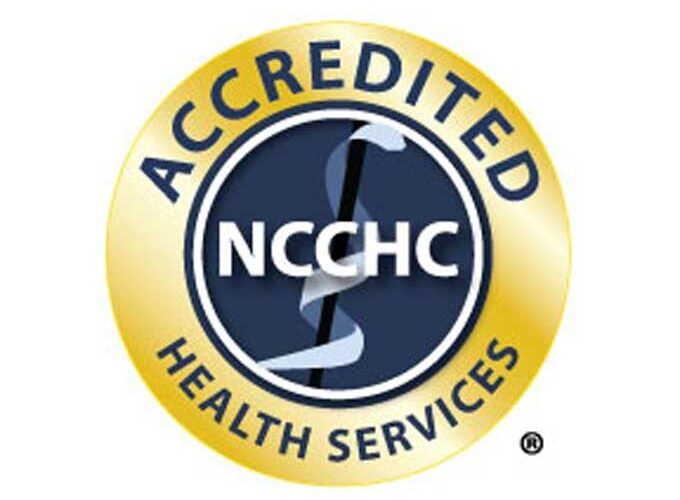Study Shows NCCHC Accreditation Raises Healthcare Standards, Reduces Mortality, Recidivism

By Fay Harvey
CAMBRIDGE, Mass. — Groundbreaking findings were recently published in a Harvard University study that evaluated the effect of facility accreditations on healthcare quality, inmate mortality rates and staff outcomes across 44 randomized U.S. jails. Researchers Marcella Alsan, Ph.D., MD, of the Harvard Kennedy School of Government and Crystal Yang, Ph.D., JD, of Harvard Law School found that accreditation from the National Commission on Correctional Health Care (NCCHC) improves compliance with healthcare standards, reduces mortality and lowers recidivism rates.
Study Methods
To understand the effects of accreditation on correctional facilities, Harvard researchers conducted a randomized, controlled trial across 44 small- to medium-sized jails—22 jails in the treatment group, 22 jails in the control group—across the U.S. The goal was to observe communication and collaboration within the jails as well as proper screening of people in their first days of custody, a period when death rates are statistically highest.
The randomly selected jails underwent an accreditation process administered through the NCCHC, the distributors of an industry-regarded “gold standard” of accreditation, according to researchers. The treatment group received substantial subsidies to pursue accreditation, while the control group received smaller subsidies to begin the accreditation process at the study’s end, approximately 24 months after enrollment. Notably, accreditation did not require additional staffing or capital investments.
Prior to undergoing accreditation, surveys were distributed to the facility’s leadership, custody staff and healthcare staff. Survey contents included questionnaires and independent audits of medical records and death logs. Researchers additionally discussed the importance of facility standards with jail administrators, healthcare providers, policy experts and formerly incarcerated people.
Key Findings
The study, which has not yet been peer reviewed, found that the NCCHC accreditation had a transformative impact on jail healthcare.
Thirteen of the 22 jails in the treatment group successfully received accreditation, and those that did showed improved horizontal communication between staff and residents as well as an improved level of staff preparation. Safety and adherence to preventative standards improved by 10%, with personnel training standards rising by 15% and patient and care treatment standards by 11%.
In terms of inmate health, the results revealed a 93% reduction in mortality during the six months following the NCCHC onsite visits mandated by the accreditation process. In the paper, researchers emphasized the importance of quality health care in jails and how it affects community health. Since 95% of people incarcerated in jails return to communities, providing services while individuals are incarcerated can improve widespread health trends and reduce the cycle of violence, with growing evidence of the effectiveness of rehabilitative programming. Researchers specifically mentioned how improving correctional health care can mitigate the spread of HIV/AIDS and Covid-19.
Additionally, individuals who were released from accredited facilities were 64% less likely to return to the same jail within three months, significantly lowering recidivism rates.
Takeaways
Researchers estimated that NCCHC accreditation provides $41 million in benefits through reduced legal liabilities, enhanced operational efficiency and reduced errors, and public health improvements that lower recidivism rates and lead to better community outcomes.
“For years, we’ve had anecdotal evidence about the power of accreditation to improve quality,” said Deborah Ross, CCHP, CEO of NCCHC, in a statement. “Now, a rigorous scientific study has shown these improvements are extremely tangible.”
The study concludes that accreditation has the potential to save lives and improve American healthcare. In the U.S. jail context, researchers say accreditation leads to informed staff, improved accountability and greater in-facility collaboration. Read the full working paper on the NCCHC website.
Additional Research
Previous studies have also evaluated the impact of accreditation. A 2021 review by The Joint Commission, a non-profit organization that evaluates and accredits healthcare organizations in the U.S., found that 80% of the 189 published research studies on accreditation showed a positive impact on quality of care; however, the studies were not conducted within a correctional setting. International studies from Denmark in 2016 and South Africa in 2003 spoke to the improved quality of care of facilities with accreditation; however, the Harvard University study is the country’s first randomized controlled trial across US jails and the first randomized trial of accreditation in any medical context in the U.S.




